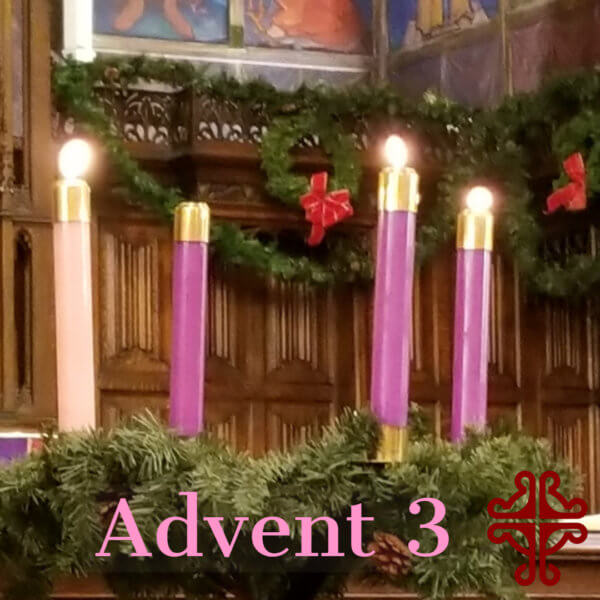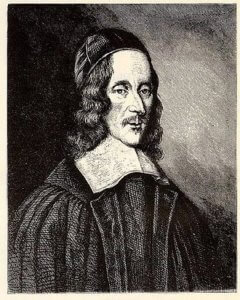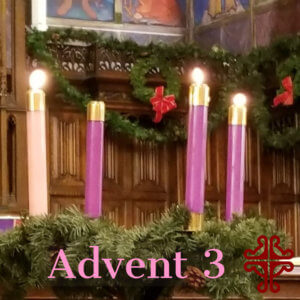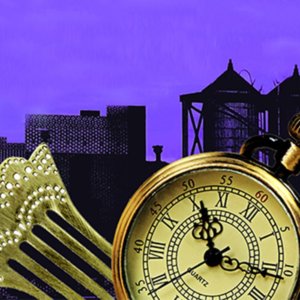
“The Call” by George Herbert
Come, my Way, my Truth, my Life:
Such a Way, as gives us breath:
Such a Truth, as ends all strife:
Such a Life, as killeth death.
Come, my Joy, my Love, my Heart:
Such a Joy, as none can move:
Such a Love, as none can part:
Such a Heart, as joyes in love.[1]
These are the words of George Herbert, the great lyricist and poet of the 17th century. Herbert writes during a time of rising social and political conflict in England, much as we live in today. He is an Anglican priest known for his instruction on the priestly life. Yet his great legacy is his poetry which describes the intimacy of his relationship and his attraction to God. His poetry is described as a window that reveals the mystery of God, much as the stained glass of a great cathedral. [2] As we listen to his poem, ‘The Call,’ we hear echoes of John’s gospel, where Jesus is described as ‘the way, the truth and the life.’ We hear the call of the poet to God, as these words attract us to the God he knows and transparently adores.[3] But it also embodies the poet’s response to a call from God.[4] It expresses a heart filled with of joy in anticipation of that union.
On this, the third of our four Sundays in Advent, we live into the great mystery of Christ: Christ has died, Christ is risen, Christ will come again. Look at what we experienced during our yearlong journey through the Gospel of Matthew. Traveling with Jesus’ ministry through those pages, we lived in God’s love in the healing power of Christ 2,000 years ago. Now, from the darkness of our world as death hovers near, we cry out for Christ to come into our lives again.
Such a Truth, as ends all strife:
Such a life, as killeth death…
Strange Place
This season of Advent puts us in a strange place. In the words of Biblical scholar William Palmer Ladd: “The past is dead. The future unborn. Between these two non-existent entities stands the present moment, living, timeless, eternal.”[5] In Advent we commemorate the past ministry of Jesus. At the same time we anticipate the arrival of the Kingdom of God in Bethlehem.[6] We have lived in the promise of the risen Christ as he walked along with us through the pages of Matthew. Yet today we look with joy to the future, yearning for Christ to come again.
 For each of us Latin scholars, Advent means “coming.” During this season we light four candles, one each week, to express our breathless anticipation of that coming in terms of: hope, love, joy and peace. Our candle on this third morning reflects the joy we feel in anticipation of Christ’s return. Center in on that joy expressed in Herbert’s words of longing for union with Christ:
For each of us Latin scholars, Advent means “coming.” During this season we light four candles, one each week, to express our breathless anticipation of that coming in terms of: hope, love, joy and peace. Our candle on this third morning reflects the joy we feel in anticipation of Christ’s return. Center in on that joy expressed in Herbert’s words of longing for union with Christ:
Come, my Joy, my Love, my Heart:
Such a Joy, as none can move:
Such a Love, as none can part:
Such a Heart, as joyes in love.
Each message we hear this morning is that same expression of joy. It is the joy of anticipation rather than the joy of a gift received. Speaking to us as the prophetic voice of God, Isaiah brings good news to the oppressed, to comfort all who mourn and bring the oil of gladness instead of mourning, for I, the Lord love justice.[7] Those who sowed with tears, cries our psalmist, those who go out weeping, carrying the seed, will come again with joy, shouldering their sheaves.[8] There is no more powerful expression of joy than the words of Mary for the blessing she is yet to receive. Her Magnificat proclaims the greatness of the Lord in the gift of bearing the Christ child. My spirit rejoices in God my Savior, for he has looked with favor on his lowly servant.[9]
Joy of Anticipation
 As we reflect on the joy of anticipation, I am reminded of O. Henry’s short story, The Gift of the Magi. These Magi are not wealthy Kings of Orient who bring worldly treasure to honor the Christ child. Here is the story of a penniless young couple determined to offer each other a Christmas gift worthy of their supreme love. Jim sells his only belonging of value, his precious gold watch, the gift of his grandfather and father, to buy a set of jewelled combs for her cascade of brown hair. Della, coincidentally, sells her beautiful brown, waist-long hair to buy Jim a platinum fob to replace the shameful leather strap on his treasure. As we walk through the story, we feel the sense of excitement, their joy, as they anticipate the happiness their gift will bestow upon the other. Moved by their love for each other, they joyfully sacrifice their greatest prize to adorn the treasure that each one has sacrificed for the other.[10]
As we reflect on the joy of anticipation, I am reminded of O. Henry’s short story, The Gift of the Magi. These Magi are not wealthy Kings of Orient who bring worldly treasure to honor the Christ child. Here is the story of a penniless young couple determined to offer each other a Christmas gift worthy of their supreme love. Jim sells his only belonging of value, his precious gold watch, the gift of his grandfather and father, to buy a set of jewelled combs for her cascade of brown hair. Della, coincidentally, sells her beautiful brown, waist-long hair to buy Jim a platinum fob to replace the shameful leather strap on his treasure. As we walk through the story, we feel the sense of excitement, their joy, as they anticipate the happiness their gift will bestow upon the other. Moved by their love for each other, they joyfully sacrifice their greatest prize to adorn the treasure that each one has sacrificed for the other.[10]
Where do we find joy today in Rhode Island, with the mounting threat of the invisible, deadly disease surrounding us? We are tossed about in uncertainty as we hear of mounting death reports in the confusion of changing signals every week. We fear the invisible, deadly disease that surrounds us. We seek to recover from the loss of life support from our community, friendship and family. We feel our very souls are at risk. We long for the joy of freedom to return to normalcy.
There is much to be joyful for. We are joyful for those who care for us and keep us safe. For those who work every day to provide the necessities of life. There is joy in the setting of the sun at Brenton Point, signaling that “the day thou gavest, O Lord, has ended.”[11] There is joy in the renewed promise of life in the rising of the sun at dawn. There is joy in the news of the approaching vaccine that may release us from this dark place. The season of Advent leads us in joy to the coming of Jesus, who is the light that will lead us home.
I leave you with the words of St. Paul, as he writes to the Thessalonians who live in their darkness of persecution. Because of their faith, their property is seized. They are denied unemployment. They are shunned by their families, insulted, beaten. Some are put to death. Paul, no stranger to persecution himself, leaves them, as he leaves us, with these words of encouragement. Rejoice always, pray without ceasing, give thanks in all circumstances.[12]
Works Referenced:
This is a homily delivered to a congregation at Emmanuel Church, Newport RI on Sunday, December 13, 2020. I am indebted to Kay Northcutt for her insights into George Herbert in her book: Kindling Desire for God: Preaching As Spiritual Direction, Fortress Press (2009),
Kindle version
[1] “The Call,” from The Temple (1633), by George Herbert
[2] Kay Northcutt. Kindling Desire for God: Preaching As Spiritual Direction (Kindle loc 461)
[3] ibid, loc 464-465)
[4] Commentary, Friends of St. Andrews, (2016), accessed online georgeherbert.org.uk
[5] William Palmer Ladd, Prayer Book Interleaves, Oxford University Press (1942/43) and The Seabury Press (1957) p. 28
[6] Massey H. Shepherd, Jr. in Documents of Witness, A History of the Episcopal Church 1782-1985 (Armentrout & Slocum, eds); p. 266
[7] Isaiah 61
[8] Psalm 126
[9] Luke 1:46
[10] O. Henry, The Gift of the Magi and Other Short Stories, Dover Publications, New York. (1992)
[11] Hymn 24, The Hymnal, 1982, Words: John Ellerton (1826-1893)
[12] Northern Seminary, In the Hardest of Times – 1 Thessalonians 3:1-5, April 15, 2013, accessed online at seminary.edu
